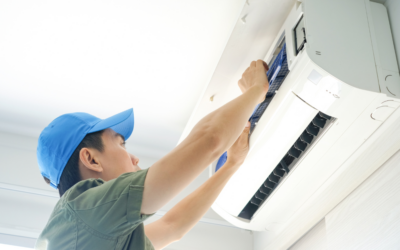When buying a condo in New Jersey, whether as a primary residence, vacation home, or investment property, one critical factor often overlooked is whether the condominium complex is approved by Fannie Mae and Freddie Mac. These are not your favorite aunt or uncle, but rather government-sponsored enterprises (GSEs) that plays a monumental role in the U.S. housing market, including New Jersey’s bustling real estate scene, by purchasing and guaranteeing mortgages. For condo buyers and owners, securing approval from these entities can impact financing options, resale value, and marketability. Consulting a New Jersey real estate lawyer can help you navigate this process and avoid costly pitfalls. Here’s why it matters and what you need to know.
What Are Fannie Mae and Freddie Mac?
Fannie Mae (Federal National Mortgage Association) and Freddie Mac (Federal Home Loan Mortgage Corporation) stabilizes the mortgage market and promotes affordable housing nationwide, including in New Jersey. They don’t lend directly to homebuyers, but buys mortgages from lenders, ensuring funds are available for more loans. To qualify, a mortgage must meet “conforming loan” guidelines that require properties like condominiums to meet specific criteria. A New Jersey real estate lawyer can explain how these guidelines apply to your condo purchase.
Why Approval Matters for Condo Buyers in New Jersey
- Access to Better Financing Options
If a condo complex is approved by Fannie Mae or Freddie Mac, buyers can secure conforming loans with lower interest rates and better terms. Without approval, you might face higher rates or larger down payments. Worse, a condo complex that is not approved by Fannie Mae or Freddie Mac, runs the risk of a buyer not being approved for a mortgage. It is extremely important for a buyer/borrower to make sure with their mortgage specialist or loan officer on whether the condominium complex is approved. A New Jersey real estate lawyer will guide you through the process ensuring that you ask your loan officer all the right questions.
- Wider Pool of Lenders
Many New Jersey lenders prefer issuing loans that can be sold to Fannie Mae or Freddie Mac to reduce risk. Non-approved condos limit your lender options, potentially increasing costs. Either way, you should know whether a condominium complex is approved so that if it is not, you understand the extra cost it may require to secure a mortgage loan for a unit within the complex.
3. Resale Value and Marketability
Approval affects future buyers in New Jersey’s competitive market. Non-approved condos may deter buyers relying on conventional financing, reducing resale value. A New Jersey real estate lawyer can assess how approval status impacts your investment.
Key Criteria for Fannie Mae and Freddie Mac Approval
To be approved, a condo complex must meet strict standards, such as:
- Financial Stability: The HOA must have a balanced budget with 10% of income in reserves.
- Owner-Occupancy Rate: At least 50% of units must be owner-occupied.
- Insurance Coverage: Adequate property, liability, and flood insurance are required.
- Litigation: No significant pending lawsuits against the complex.
- Regulatory Compliance: An HOA must ensure that units have the proper certifications such as fire detector/smoke detector certifications; approvals from the New Jersey Department of Community Affairs (DCA); construction approvals; and/or municipal certificates of occupancy.
- Commercial Space: Limits on non-residential use, often capped at 25-35%.
- Delinquency Rates: No more than 15% of owners can be delinquent on HOA dues.
The Risks of Buying in a Non-Approved Complex
Purchasing a non-approved condo in New Jersey carries risks:
- Limited Buyer Pool: Future resale could be tougher.
- Higher Costs: Non-conforming loans often have higher rates.
- HOA Red Flags: Non-approval might indicate financial or management issues.
For example, if an HOA lacks reserves or has high delinquency rates, you could face unexpected costs. A New Jersey real estate lawyer should review HOA documents to investigate these risks before you commit and ensure these criteria are met.
How to Check Approval Status in New Jersey
Before buying, ask the seller or HOA about the approval status. You can also:
- Consult Your Lender: They can verify approval with Fannie Mae or Freddie Mac.
- Use Online Tools: Fannie Mae’s Condo Lookup Tool is a helpful resource.
- Review HOA Documents: A New Jersey real estate lawyer can assist analyzing such HOA documents such as budgets, bylaws, and insurance policies for compliance.
If the condo complex isn’t approved, the HOA can apply, but the process takes time, and such timing may not work to allow you to complete your transaction.
Conclusion: A Small Step with Big Payoff
Ensuring a condominium complex is approved by Fannie Mae and Freddie Mac is crucial in New Jersey’s real estate market. It’s not just about securing a loan today—it’s about protecting your investment. Whether you’re a first-time buyer or seasoned investor, a New Jersey real estate lawyer can assist you with confirming approval status, saving you headaches and money. In a state with diverse housing options, this step ensures your condo remains a smart, marketable asset. Next time you’re eyeing a New Jersey condo, don’t just focus on the view—verify its GSE approval with help from a New Jersey real estate lawyer.
Buyers who are looking to purchase real estate in New Jersey should contact a skilled New Jersey real estate attorney. If you wish to learn more, please contact Abdou Law Offices, LLC at (732) 540-8840.
.



